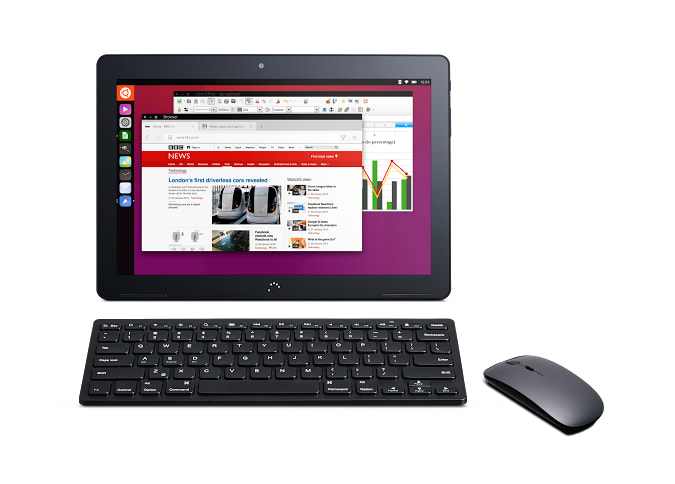The tablet that turns into a PC is available to buy!
Amrisha Prashar
on 18 April 2016

Last month we announced that the Aquaris M10 Ubuntu Edition tablet was available as a pre-order bundle. This time round, we’re pleased to let you know that it’s available to buy now!
If you’ve already purchased a bundle during the pre-order – that’s awesome! And the good news is that shipping has already started…though if you haven’t already purchased, it’s not too late!
Here at Canonical HQ we’re thrilled to be bringing our first fully converged device to market with European partners BQ. This device is capable of providing a true tablet experience and the full Ubuntu desktop experience and will dynamically adapt to change from one mode to the other!

It’s simple to connect a bluetooth mouse and keyboard to convert the Aquaris M10 Ubuntu Edition into a full Ubuntu laptop, featuring everything you know and love about Ubuntu. Then, connect the tablet to an external display for a full-sized PC experience.
There will be two devices, FHD and HD, that will be shipped worldwide, and for our Russian customers information on pre-order can be found here.
Learn more about the tablet or buy the Aquaris M10 Ubuntu Edition here.
Talk to us today
Interested in running Ubuntu in your organisation?
Newsletter signup
Related posts
AI meets SQL Server 2025 on Ubuntu
Partnership between Microsoft and Canonical Since 2016, when Microsoft announced its intention to make Linux a first class citizen in its ecosystem, Canonical...
AWS IoT Greengrass comes to Ubuntu Core
AWS’s open source edge run time meets Canonical’s fully containerized OS for devices delivering a supported and robust end-to-end answer for enterprises...
Tutorial: getting started with AWS IoT Greengrass on Ubuntu Core
We recently announced that you can now benefit from the combined power of Ubuntu Core and AWS IoT Greengrass to bring the computation, storage, and AI...
